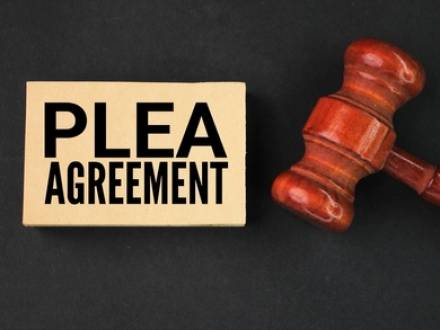Recent Blog Posts
Defending Against Sex Trafficking Charges in Texas
 A Jacksonville, TX man was recently convicted of sex trafficking teens, leading to a sentence of life in federal prison. The 28-year-old man received seven life sentences on June 18th after being convicted of six counts of sex trafficking of children and one count of conspiracy to commit sex trafficking of children. The teenage girls were recruited via social media and deceived by promises of money for modeling.
A Jacksonville, TX man was recently convicted of sex trafficking teens, leading to a sentence of life in federal prison. The 28-year-old man received seven life sentences on June 18th after being convicted of six counts of sex trafficking of children and one count of conspiracy to commit sex trafficking of children. The teenage girls were recruited via social media and deceived by promises of money for modeling.
The girls were then placed in hotels in the Tyler, TX area, and sex advertisements were placed on the internet. Some of the victims were as young as 13 years old. Sex trafficking charges in the state are among the most serious accusations a person can face. These charges carry severe criminal penalties, as well as lengthy prison sentences and mandatory sex offender registration.
Negotiating Plea Deals in Texas Sex Crime Cases
 Facing sex crime charges in the state of Texas can be overwhelming. The penalties for a conviction include lengthy prison sentences, sex offender registration, and a permanent criminal record. However, in some cases, a trial is not the only path forward, and if you can avoid a trial, you will also avoid much of the ugliness that accompanies sex crime trials.
Facing sex crime charges in the state of Texas can be overwhelming. The penalties for a conviction include lengthy prison sentences, sex offender registration, and a permanent criminal record. However, in some cases, a trial is not the only path forward, and if you can avoid a trial, you will also avoid much of the ugliness that accompanies sex crime trials.
Prosecutors and defense attorneys commonly engage in plea negotiations in an effort to resolve charges without ever going to court. If you are facing sex crime charges, a well-negotiated plea deal may reduce your penalties or perhaps even reclassify your offense. In some cases, charges can be dismissed entirely. When you have an experienced Plano, TX criminal defense attorney who is highly skilled in plea bargaining, you could end up with a much better outcome.
Is Sexual Coercion the Same as Sextortion in Texas?
 Sextortion is the name for a relatively new sex crime that includes blackmail. The perpetrator of sextortion coerces an individual, often a teenage boy or girl, into sending nude or sexual images or videos. The perpetrator then threatens to send those images to the individual's parents, spouses, coworkers, family members, or schoolmates if the individual does not send money.
Sextortion is the name for a relatively new sex crime that includes blackmail. The perpetrator of sextortion coerces an individual, often a teenage boy or girl, into sending nude or sexual images or videos. The perpetrator then threatens to send those images to the individual's parents, spouses, coworkers, family members, or schoolmates if the individual does not send money.
Reports of sextortion schemes have skyrocketed across the nation. The National Center for Missing and Exploited Children says it received more than 500,000 reports of sextortion scams targeting minors in 2024. At least 20 young people have taken their own lives as a direct result of sextortion scams since 2021.
While most states do not have specific sextortion laws (although that is changing), they do have other laws under which this crime is charged. If you are charged with a crime similar to sextortion in Texas, you must take these charges very seriously and contact a Plano, TX criminal defense attorney as quickly as possible.
Statute of Limitations Effect on Sexual Abuse Allegations
 Statutes of limitations (SOL) are a window of time in which victims and the state have to bring criminal charges or a civil lawsuit. Murder is exempted from the statute of limitations in most states, meaning a person can be prosecuted for murder no matter how long it has been since the crime occurred. Sex crimes against minors, certain other violent crimes, and crimes that involve public funds may have no statute of limitations in some states.
Statutes of limitations (SOL) are a window of time in which victims and the state have to bring criminal charges or a civil lawsuit. Murder is exempted from the statute of limitations in most states, meaning a person can be prosecuted for murder no matter how long it has been since the crime occurred. Sex crimes against minors, certain other violent crimes, and crimes that involve public funds may have no statute of limitations in some states.
Statutes of limitations vary from state to state and according to whether the claim is criminal or civil. An alleged sexual abuse crime in Texas has brought the issue of statutes of limitations to the forefront. A North Texas megachurch founder and pastor faces child sex abuse charges in Oklahoma for allegations that he had sexual relations with a 12-year-old girl in Oklahoma when he was a traveling preacher in the 1980s. The victim is now 55, meaning under Texas law, the statute of limitations for a civil claim has tolled.
Texas Serial Bank Robber Receives 10 Years in Federal Prison
 A man who robbed banks in Irving, Dallas, and Garland, Texas, while on supervised release for a prior bank robbery conviction, was recently sentenced to more than a decade in federal prison. Since the 1930s, the FBI has played a primary role in bank robbery investigations, beginning with notorious bank robbers John Dillinger and his gang. In 1934, robbing any national or state member bank of the Federal Reserve System became a federal crime.
A man who robbed banks in Irving, Dallas, and Garland, Texas, while on supervised release for a prior bank robbery conviction, was recently sentenced to more than a decade in federal prison. Since the 1930s, the FBI has played a primary role in bank robbery investigations, beginning with notorious bank robbers John Dillinger and his gang. In 1934, robbing any national or state member bank of the Federal Reserve System became a federal crime.
The 43-year-old man in the example above was first convicted of bank robbery in 2018. At that time, he was sentenced to six years in prison. He was released after serving his time, and less than five months later, he robbed three banks in Texas within the space of a week. After his arrest, he pleaded guilty to bank robbery in October 2024.
Plea Bargains for Federal Child Exploitation Charges
 According to the Department of Justice’s Bureau of Justice Assistance, the overwhelming majority of criminal cases (90 to 95 percent) result in a plea bargain. Plea bargaining is one of the most fundamental elements in the federal criminal justice system when it comes to child exploitation cases, including child pornography, child sex trafficking, child sexual abuse, and the sexual exploitation of a child.
According to the Department of Justice’s Bureau of Justice Assistance, the overwhelming majority of criminal cases (90 to 95 percent) result in a plea bargain. Plea bargaining is one of the most fundamental elements in the federal criminal justice system when it comes to child exploitation cases, including child pornography, child sex trafficking, child sexual abuse, and the sexual exploitation of a child.
A negotiated agreement between the defense and prosecution aims for a guilty plea in return for reduced charges or lighter sentencing. The government is spared the time and expense of a trial, while the defendant receives a more beneficial outcome. The stakes for the defendant in child exploitation and all crimes against children charges are exceptionally high.
Texas Couple Faces Federal Charges for Medicare Fraud
 A Harlingen husband and wife were recently arrested and charged with defrauding Medicare. The couple operates a company that is a Medicare provider of durable medical equipment and services, including parts and repairs for powered wheelchairs. Both husband and wife pleaded guilty to the federal charges.
A Harlingen husband and wife were recently arrested and charged with defrauding Medicare. The couple operates a company that is a Medicare provider of durable medical equipment and services, including parts and repairs for powered wheelchairs. Both husband and wife pleaded guilty to the federal charges.
They acknowledged billing Medicare for over $700,000 for only one person by claiming to replace expensive parts on a motorized wheelchair repeatedly. The couple stated they used the proceeds of the Medicare fraud to purchase vehicles, expensive electronics, and cryptocurrency. Between 2019 and 2023, Medicare was billed over $14 million for power wheelchairs, parts, and repairs for only 37 beneficiaries.
The couple faces up to 10 years in federal prison and a maximum fine of $250,000. If you are facing federal charges for any type of fraud, take them very seriously. Speak to an experienced Texas federal crimes attorney as soon as possible so he or she can begin building a defense.
Teacher Charged with Inappropriate Relationship with a Student
 A South Texas teacher faces charges that include one count of an inappropriate relationship with a student and one count of indecency with a child involving sexual contact. Both of these criminal offenses are second-degree felonies.
A South Texas teacher faces charges that include one count of an inappropriate relationship with a student and one count of indecency with a child involving sexual contact. Both of these criminal offenses are second-degree felonies.
The teacher worked for the Donna Independent School District in the Career Technical Education department. District officials say the teacher, who was released on $40,000 in cash/surety bonds, passed rigorous background checks but declined to provide further details.
If you are facing such serious charges in the state of Texas, it is important that you know the penalties for a conviction are extremely harsh. An experienced Plano, TX criminal defense lawyer is an essential first step in ensuring your rights and future are properly protected.
Can Digital Evidence Be Trusted in Computer Sex Crimes Cases?
 If you have been charged with possession of child pornography, you may be aware of the serious nature of this crime. The state of Texas prosecutes these criminal offenses zealously, and the penalties are extremely severe. Prosecutors must present evidence that definitively proves the existence of child pornography, so these cases often revolve around digital evidence.
If you have been charged with possession of child pornography, you may be aware of the serious nature of this crime. The state of Texas prosecutes these criminal offenses zealously, and the penalties are extremely severe. Prosecutors must present evidence that definitively proves the existence of child pornography, so these cases often revolve around digital evidence.
This digital evidence could include digital copies of child pornography materials or data that links the individual to the crime. If this data is not properly collected, the admissibility of the evidence may be challenged, and an experienced attorney will seek to have the evidence excluded. It is extremely important that you contact an experienced Plano, TX criminal defense lawyer to ensure that your rights are protected and that you receive the most zealous defense available.
Are You Under Federal Investigation for Child Pornography?
 Although both state and federal investigations are serious – and child pornography charges are especially serious – you may wonder whether you would know if you were under federal investigation. There are certain signs that you might not be aware of.
Although both state and federal investigations are serious – and child pornography charges are especially serious – you may wonder whether you would know if you were under federal investigation. There are certain signs that you might not be aware of.
If you have even the slightest belief that you are under federal investigation, you should speak to a knowledgeable Plano, TX criminal defense attorney with extensive experience in both federal crimes and sex crimes. You have much to lose if you are convicted federally of child pornography.
What Makes Child Pornography Charges Federal?
You could be charged federally for child pornography rather than under state law if the offense occurred in interstate or foreign commerce. Since the vast majority of child pornography is transmitted over the Internet, federal law is usually triggered, even if the image itself did not travel across state or international borders.

















